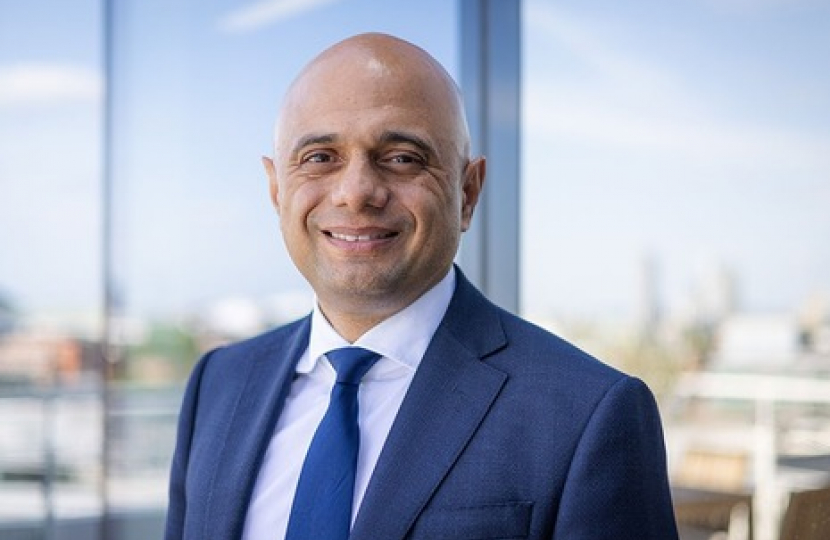
This article was originally published in The Times, 15/5/2023: https://www.thetimes.co.uk/article/effective-dementia-research-requires…
Few families across the country have not been affected by dementia. This cruel disease is both widespread and devastating. It takes away so much from those we love and slowly destroys lives.
As a constituency MP and former health secretary I have met many dementia patients, particularly in care homes and hospitals. Some are old friends.
There are good and bad days. There are precious glimpses of the person I once knew. But gradually, the disease takes over.
Dementia Action Week is an opportunity to reflect on progress made in the war against it. It is also a reminder of how much more needs to be done.
More than 900,000 people are estimated to have dementia in England and Wales. It is the biggest killer in the UK today. Concerningly the number of people diagnosed with dementia is expected to double by 2040.
This growth is not inevitable. Radical improvements in prevention, early diagnosis and treatments are possible. In the past year we have seen groundbreaking progress for two new dementia drugs, providing much needed hope.
Overall trends are still moving in the wrong direction, however. Alongside long-term demographic challenges and the impact of Covid, the increase of a major disease is yet another threat to the health and care system.
This makes tackling it not only a moral imperative but an economic, health and fiscal necessity.
As I argued as health secretary, the ways in which we will dramatically improve dementia outcomes are also the ways we need to reform the health and care system as a whole. This includes delivering long-term strategies, doing more on prevention, unleashing life sciences innovation and backing new models of care.
The importance of long-term thinking is why I announced a ten-year dedicated strategy for dementia at the Alzheimer’s Society conference last year. This went alongside strategies for cancer and mental health.
Irrespective of political leadership, these ten-year plans will provide much-needed focus and stability.
I was disappointed to see them dropped in favour of a broader approach. Like others, I worry that this new strategy will mean critical disease-specific action could not happen. By failing to prepare for each disease there is now a risk we fail to properly deliver.
Alongside this, there is increasing recognition that for too long the NHS has been viewed as a “National Hospital Service” — treating people when they get sick rather than preventing them from becoming ill in the first place.
However, it often feels as if there is a disconnect between primary care, such as GPs, and secondary care, including hospitals. They should be working together more closely to the benefit of patients already in the system, and the wider community.
Recently announced measures to increase access to primary care are a step in the right direction but must go much further on fundamental reform.
Making progress on waiting lists and supporting a population health-based approach relies on this. When it comes to general practice there will never be a one-size-fits-all model but meeting these objectives lends itself to having more scaled-up providers.
Among much else, this should include incentivising more salaried GP providers for the NHS. This can help drive better co-ordination to support patient care, alongside greater strategic planning on prevention.
Taxpayers foot the bill whether GPs are contracted or employed directly by the NHS. But the ability to drive better co-ordination to support patient care alongside, greater strategic planning on prevention, are tangible benefits.
The government should now commission a comprehensive independent review into primary care to assess what change is required.
When it comes to new models of care, we should also be supporting leaders on the ground who drive innovation. Much of our success against major diseases can take place at a neighbourhood level, particularly on early diagnosis. An important part of this should be new academy-style NHS trusts, where successful leadership teams share best practice with poorer performing areas.
Lastly we must do much more to support overall research. I was proud to help double new funding towards this but there is massive potential for innovation which must be unlocked.
Beating dementia requires ambitious reform. There are no quick or easy fixes. Some may want to believe our recovery from the pandemic can be achieved without it. That is unequivocally false. As with so much in our health service, the scale of the challenge on dementia demands a fundamental new approach.
As I saw first hand, too many people who live with dementia no longer have a voice. They deserve nothing less than the full weight of the government behind this. Families and charities have made loud calls for action. Now is the time for the government to listen and act.

